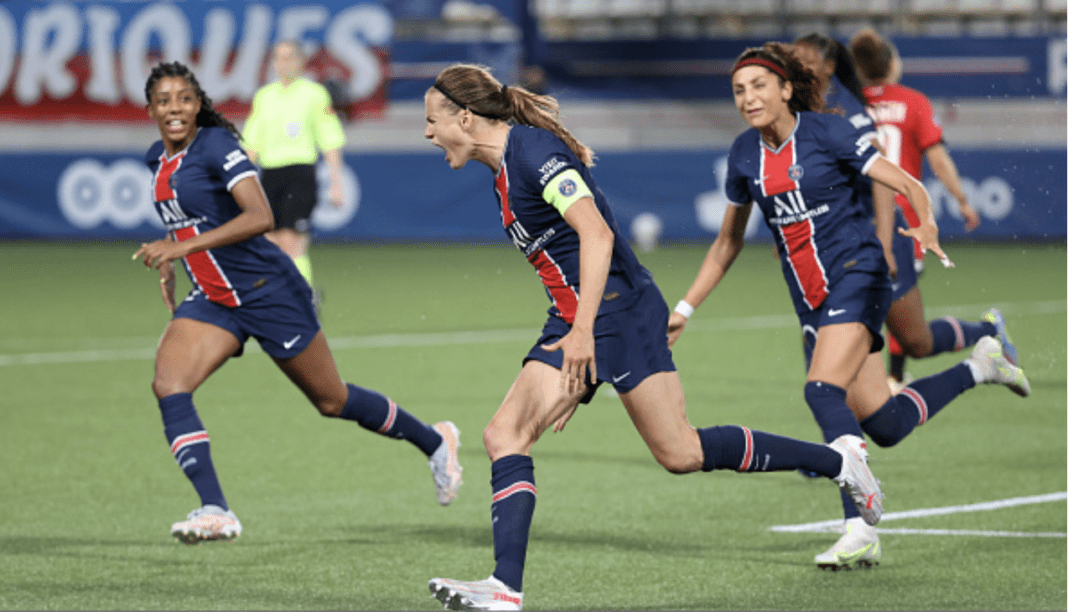

On November 10th, the COMEX (Executive Committee of the French Football Federation) requested a study case to the Law and Sports Economy Centre (CDES) about the possibility of creating a women’s professional football championship.
French women’s football needs help
England, Spain, Italy and other neighbours have already created a professional scheme. France, which qualifies itself as a pioneer of women’s football, proves to us once more that it is miles behind the others.
We keep in mind that France hosted the FIFA Women’s World Cup in 2019, and “nothing” has happened since. Could a young soccer girl finally turn pro in France?
Although they are negotiating new TV rights, the D1 Arkema is not as successful as other European leagues. On November 19th, Arsenal played in front of 40,064 people while the cumulated affluence of the D1 Arkema (42 games) stood at 25,862.
The D1 Arkema needs to improve so that it can maintain the interest of players and supporters.
Executive Committee : Minutes from November 10th:
Statements 4.3 and 4.4 relate to French women’s football.
4.3) D1 Arkema: formation centres. Following the commitment of the EC to structure high-level women’s football and the creation of approved women’s training centres for implementation as of the 2022/2023 season, Hubert Fournier presented a progress report on the work for the establishment of these training centres. It recalls the challenges in training young players and the general principles governing the specifications of future training centres for D1 Arkema clubs. It is therefore necessary to remain vigilant so that this project concretizes, in favour of the development of women’s football, in particular by raising FIFA’s awareness of the need to extend the compensation mechanism to women’s players.
4.4) Reflexion on creating a women’s professional league. Jean-Michel Aulas recalls the European context regarding high-level women’s football and the challenges for the FFF, which aims to remain the spearhead in this area. All the efforts made in recent years on the technical, medical and organizational levels must be strengthened to develop French women’s football. Sharing this analysis, the Executive Committee decided to engage the Limoges Law and Sports Economy Centre for a study on the feasibility of creating a women’s professional league within the FFF. This report will aim to examine the terms of implementation of this future league.
How does French women’s football work?
French women’s football has remained competitive thanks to Olympique Lyonnais and Paris Saint-Germain. We have to give credit to former Montpellier HSC president Louis Nicollin for developing the game. OL’s Jean-Michel Aulas then created the greatest dynasty in women’s football.
We could divide the French women’s championship into three different levels:
- The giants, the pros (Olympique Lyonnais, Paris Saint-Germain)
- The semi-pros (Montpellier HSC, Paris FC, Girondins de Bordeaux)
- The amateurs (ASJ Soyaux, EA Guingamp, Rodez AF)
View this post on Instagram
The biggest problem is the elite division should be composed entirely of pro teams, which other countries understood years or months ago.
France’s federal contracts:
Since 2009-10, the French elite women’s football system has rested on federal contracts. A federal contract is governed by the national collective sports agreement. Players are working full-time or part-time in a structure more or less related to their club or for a collective, and can train and play with their team.
“Where boys have a real status of footballer, girls find themselves in the same working conditions as a gymnasium guard for example”, explains Fabien Safanjon, vice-president of the Union of professional footballers (UNFP).
As they’re not considered to be professionals, women’s players cannot rely on the UNFP to defend their rights. They’re under the French working system and mostly earn just over the minimum. In 2020, 160 players were under federal contracts, including the half on part-time jobs.
The next executive committee will take place on January 6th 2023.
Follow Beyond 90’s coverage of the D1F here.






